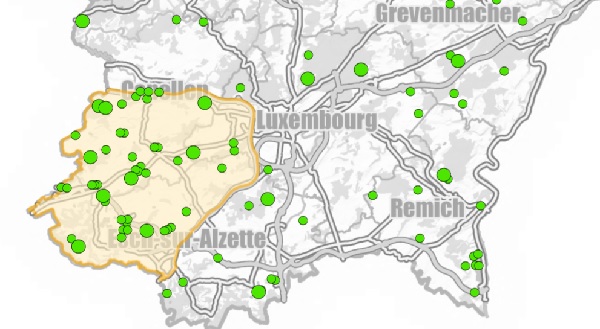
The PPA Task Force met for the fourth time on Friday 15 February 2019, at the Ministry of Agriculture, Viticulture and Rural Development, in the presence of Ministers Carole Dieschbourg and Romain Schneider and in the presence of all potentially affected stakeholders by this disease, such as the pig sector, hunters, transporters, slaughterhouses and other actors in the pork industry, animal feed companies and representatives of forest owners. The purpose of this fourth meeting was to make an assessment of the evolution of the PPP situation both in our neighbouring countries and in the Grand Duchy of Luxembourg.
In this context, Minister Schneider stressed the importance of enhanced communication targeting the general public, hunters, and also transit transport professionals in Luxembourg. For this reason, the information campaign on large rest areas has been relaunched to draw attention to the fact that food waste must imperatively be thrown into closed waste containers.
Action plan in case of virus detection
When the virus is detected on a wild boar, the measures consist mainly of delimiting the infected area by searching for carcasses, setting up a fence and prohibiting any activity in the forest, including hunting. In the peripheral zone of the infected zone, however, the destruction of wild boars by all means will be ordered.
Prevention - control - eradication
• Surveillance zone bounded on the north by the A6 motorway from Steinfort to Luxembourg, on the east by the A4 from Luxembourg to Esch-sur-Alzette and by the Belgian and French borders;
• At present, there are no specific hunting restrictions;
• The sampling and analysis of corpses of wild boars, deaths of unknown cause, and in surveillance zone of wild boars, are made;
• The operation of collection centers for game is guaranteed, their number has been increased to 10;
• Urgent warning to hunters and farmers to respect biosecurity rules;
• Obligation to confine domestic pigs in the surveillance zone.
To date, a total of 109 wild boars have been brought and analysed at the State Veterinary Medicine Laboratory (LMVE). All PPP test results have been negative. To date, no case of African swine fever on a wild boar has been detected in our territory.
The members of the government, Minister Dieschbourg and Minister Schneider, also recalled that the ASF virus affects domestic boars and pigs but does not pose any risk to humans, even in the case of consumption of meat or contaminated meat products.








